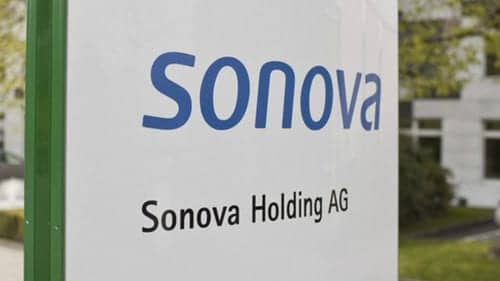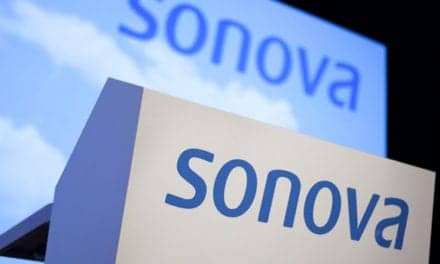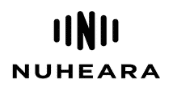Hearing solutions provider Sonova Holding AG, Stäfa, Switzerland, released its 2016/17 Annual Report and announced that the Group continued to build on its solid performance history to deliver a strong set of results in 2016/17. Consolidated sales reached CHF 2,395.7 million (approximately USD $2.4 billion) an increase of 15.3% in local currencies or 15.6% in Swiss francs. According to the report, this was driven both by organic growth across all businesses and by acquisitions, particularly the effect of the AudioNova consolidation. Organic growth accelerated significantly over the course of the year, driven by the successful introduction of innovative new products. Normalized for one-time costs, Group EBITA reached CHF 481.4 million (approximately USD $489 million), representing an increase of 12.1% in local currencies and 11.8% in Swiss francs, the company said.
Highlights from the report include sales of CHF 2,190.3 million (approximately USD $2.2 billion), up 15.9% in local currencies for the Group’s hearing instruments segment, and sales of CHF 205.4 million (approximately USD $208.8 million), up 9.6% in local currencies, for its cochlear implants segment. Also reported was operating free cash flow that reached CHF 424.8 million (approximately USD $431.8 million), up 23. The Board of Directors had proposed a dividend of CHF 2.30 per share, up 9.5% from last year with a normalized payout ratio of 41, the announcement said. The outlook for consolidated sales are anticipated to grow by 10% to 12% in fiscal year 2017/18 and EBITA is projected to rise by 10% to 14%, both measured in local currencies, Sonova said.
“Today’s results and our strong track record are further evidence of the successful execution of the Group’s strategy and transformation to a fully integrated business model. With the acquisition of AudioNova, we achieved another major milestone on this journey. At the same time, we vigorously continued to set new industry and technology standards including the introduction of an extensive portfolio of rechargeable hearing solutions across all our product brands. Particularly well received by our customers was the Phonak AudéoTM B-R, our first hearing aid based on innovative lithium-ion technology. We are further building on our leadership and 70-year history of innovation with the soon to be launched new 2.4 GHz wireless technology, which will support, among other things, unparalleled direct connectivity with Bluetooth® enabled mobile and smartphones. I am therefore convinced that we are well-placed for the continued success of the group,” said Lukas Braunschweiler, Sonova CEO.
Solid Organic Growth Further Boosted by Strategic Acquisitions
Sonova Group sales in 2016/17 grew by 15.3% in local currencies and 15.6% in reported Swiss francs to CHF 2,395.7 million,(approximately USD $2.4 billion) according to the report, and organic growth was 4.3%, driven both by the hearing instruments and cochlear implants segments, which saw a marked acceleration over the course of the year. Exchange rate fluctuations had a minimal impact, adding just 0.3% to the reported growth rate, according to the company. The sales increase was strongly supported by acquisitions made in the reporting period, as well as annualizations of prior year acquisitions. In total, acquisitions added CHF 244.6 million (approximately USD $248.6 million) or 11.8% to the increase, mainly stemming from the acquisition of AudioNova, effective September 2016, said Sonova. Prior year business disposals reduced growth by 0.8%.
Strong Momentum Driven by Europe
According to the report, sales in EMEA (Europe, the Middle East, and Africa) increased 33.8% in local currencies; this is the largest region, accounting for 48% of group sales. Organic sales increases in both segments were further boosted by acquisitions, in particular, AudioNova. The report goes on to say that the development of Sonova’s hearing instruments business was negatively affected, mainly during the first half of the financial year, by expected reactions from wholesale customers, mainly in Germany, following the announcement of the AudioNova acquisition in May 2016. The cochlear implants business achieved strong progress throughout the year.
Sonova reported that the Group’s business in the United States, representing 33% of total sales, accelerated in the second half of the year, resulting in a sales increase of 1.0% in local currency. Growth in the hearing instruments segment was driven by the Phonak brand, which benefited from the successful introduction of new products. This was partially offset by a decline at Unitron ahead of a new platform introduction towards the end of the fiscal year, along with no growth in Sonova’s US retail network, which is undergoing a streamlining program. The cochlear implants business maintained strong momentum throughout the year, achieving a double digit sales increase, Sonova said. The rest of the Americas (excluding the United States)—representing 9% of total sales—reported a sales increase of 3.8% in local currencies. Solid overall performance was partly offset by a targeted reduction of low-margin government tender business in Brazil and a sales decline at Unitron Canada, Sonova reported.
Accounting for 10% of Group sales, the Asia/Pacific region achieved a sales increase of 2.0% in local currencies. This, in part, reflects the demanding base level set after the exceptional sales increase achieved in the prior year. Australia, New Zealand, and Japan showed solid growth, while China and India saw a refocusing on higher-margin business, resulting in targeted reductions in certain channels, according to the report.
Details of Sonova’s Growth From New Products and Acquisitions in its Hearing Instruments Segment
Sonova announced that sales in the hearing instruments segment reached CHF 2,190.3 million (approximately USD $2.2 billion), representing an increase of 15.9% in local currencies and 16.2% in reported Swiss francs. Organic growth was 3.8% in local currencies, supplemented by 12.1% or CHF 227.1 million (approximately USD $230.8 million) from acquisitions net of disposals. The majority of this growth came from the acquisition of AudioNova, according to the company, and organic growth in the second half accelerated significantly with several successful new product launches, including the introduction of the rechargeable Phonak AudéoTM B product.
All hearing instrument product categories achieved double-digit growth in local currencies, according to the company, and the acquisition of AudioNova did not result in a significant shift of the product mix. Wireless communication systems were up 14.9% in local currencies, almost exclusively from organic growth. This marks the third consecutive year with double digit growth, reflecting a continued strong market response to Sonova’s solutions for school and workplace use, said the company. Sales in the “miscellaneous” product category—which includes accessories, batteries, and services—increased by 24.9% in local currencies, largely driven by AudioNova.
Sonova reported that the hearing instruments business, which includes sales to independent audiologists, retail chains, multinational, and government customers—excluding Sonova’s retail business—grew 2.8% in local currencies to CHF 1,311.2 million (approximately USD $1.3 billion). Sales saw a marked acceleration in the second half, driven by the successful introduction of Phonak AudéoTM B in September 2016. The rechargeable technology product range was further broadened by the launch of the same feature in the Phonak BoleroTM product family in February 2017.
Growth in Europe was strong despite an expected headwind from independent customers in Germany after the announcement of the AudioNova acquisition in May 2016, the report from Sonova said. Phonak US and Canada grew strongly across the main channels and Sonova also increased market share in its business with the US Department of Veterans Affairs (VA). An updated product offering at Costco contributed to strong growth in the second half-year, said Sonova, but was partially offset by a decline at Unitron in both countries, where the product portfolio was coming to the end of its current product cycle ahead of the introduction of the new Tempus platform in March/April 2017. With the exception of China and India, the Asia/Pacific region continued its growth trajectory with strong increases in Australia, Japan, and Korea. In China and India, Sonova said the Group has proactively reduced its exposure to low-margin business.
The retail business, consisting of over 3,300 Sonova-owned points of sale in 12 key markets, increased sales by 42.7% in local currencies to CHF 879.1 million (approximately USD $893.5 million), Sononva reported. Boots Hearingcare continued on its long-term growth trajectory supported by new product introductions, but the retail market environment in the United States remained challenging and the business could not grow beyond the prior year’s result. The US network is undergoing additional streamlining and productivity improvement; Canada and Asia/Pacific continued to perform strongly, the company said.
AudioNova was consolidated from September 2016 and the integration of the business is well on track and did not affect day-to-day retail business, Sonova reported. Geers in Germany kept up its strong growth record, expanding on its position in the market. AudioNova in the Netherlands initiated a restructuring program to adjust the store network and cost structure to recent changes in the reimbursement conditions. In a successive transaction, the AudioNova business in France was sold effective March 1, 2017, and, effective April 1, 2017, AudioNova’s Portuguese business was sold to the same buyer. This transaction will appear in the accounts for the 2017/18 financial year, according to the report.
Reported EBITA for the hearing instruments segment amounted to CHF 455.0 million (approximately USD $462.5 million), up 6.0% in local currencies. The normalized EBITA for the hearing instruments segment increased by 10.3% in local currencies to CHF 473.4 million (approximately USD $481.2 million), corresponding to an EBITA margin of 21.6%. The company reported that the EBITA margin development in the ongoing business was positive through a strong focus on managing operating costs and achieving additional efficiency and scale in manufacturing. The acquisition of AudioNova and other retail businesses, with its resulting higher relative share of retail revenues, negatively affected the margin. This was partially offset by a CHF 3.9 million (approximately USD $4.0 million) capital gain from the sale of AudioNova France. In the prior year, reported EBITA included a capital gain of CHF 8.7 million (approximately USD $8.8 million) from the sale of two non-core businesses, partly offset by a CHF 2.3 million (approximately USD $2.3 million) foreign exchange loss on working capital.
Sonova Reported “Momentum” in Second Half of Year for Cochlear Implants Segment
The report states that total sales for the cochlear implants segment were CHF 205.4 million (approximately USD $208.8 million), an increase of 9.6% in local currencies and 9.8% in reported Swiss francs.
Double digit new systems sales growth across North America and the EMEA region was driven by an attractive product portfolio and new product introductions in the second half-year, according to Sonova, including the new HiResTM Ultra implant; this was partially offset by slower growth in Latin America and the Asia/Pacific region. Upgrade sales to existing users were held back by a decline in the first half-year, largely related to a smaller qualifying customer base eligible for insurance- funded replacement of their sound processors. Increasing at a double-digit rate, Sonova reported that upgrade sales recovered strongly in the second half of the year.
EBITA increased to CHF 8.0 million (approximately USD $8.1 million), compared to a break-even result in the prior year, reflecting good operating leverage and strict cost management, the report said. Capitalized development costs totaling CHF 35.6 million (approximately USD $36.2 million) were impaired as a result of changes in the development roadmap, such as the decision to skip directly to Sonova’s new 2.4 GHz platform for sound processor technology in cochlear implants. This cost was offset by a CHF 37.4 million (approximately USD $38.0 million) provision release for cochlear implant product liabilities that resulted from a better-than-expected development in related claims, the company said. The assessment of both of these items is based on a regular systematic review. In summary, this resulted in a net benefit of CHF 1.8 million (approximately USD $1.8 million), which was reflected in the reported EBITA.
Outlook 2017/18
Sonova expects to achieve continued solid growth in sales and profitability in both the hearing instruments and cochlear implants segments during 2017/18, with anticipated sales increases of 10-12% in local currencies. Developments are expected to be supported by Sonova’s product and solutions portfolio as well as the company’s continued commitment to innovation. Before one-time costs related to AudioNova in both the 2016/17 and 2017/18 financial years, EBITA is expected to increase 10%-14% in local currencies.
For a look at the complete report and additional details from Sonova Group, see the company’s first half results for 2016/17 as reported in Hearing Review. The presentation of the Full-Year Results 2016/17 can be downloaded at the Sonova website.
Additional information about Sonova’s business developments, including its acquisition of AudioNova, can be found here and here, among other HR articles.
Source: Sonova






